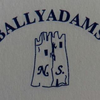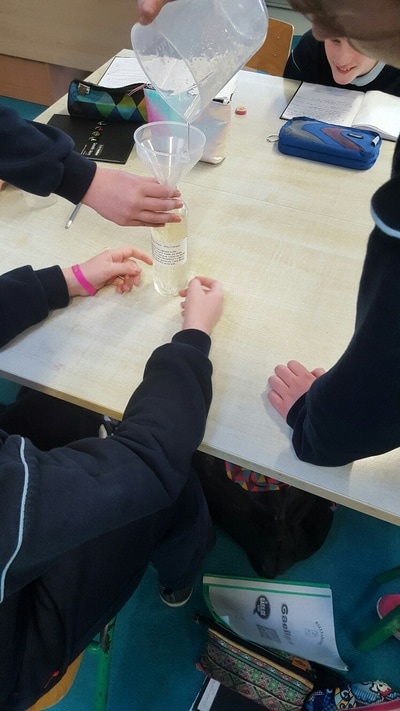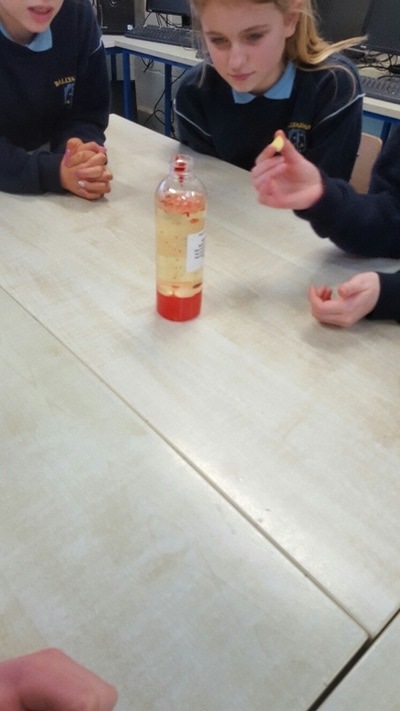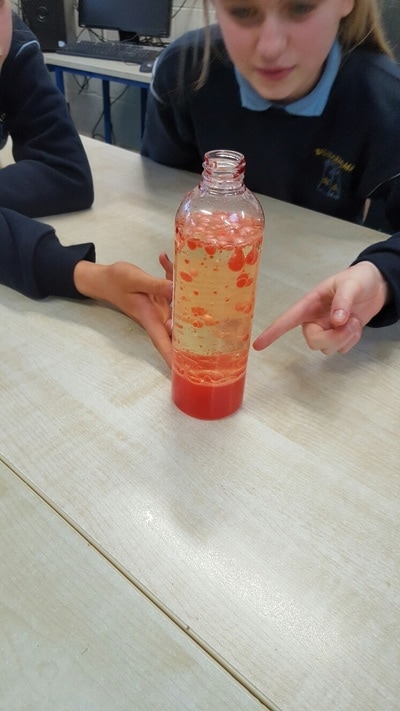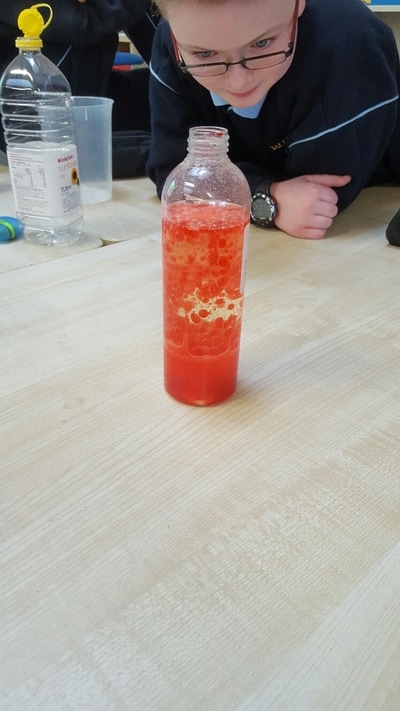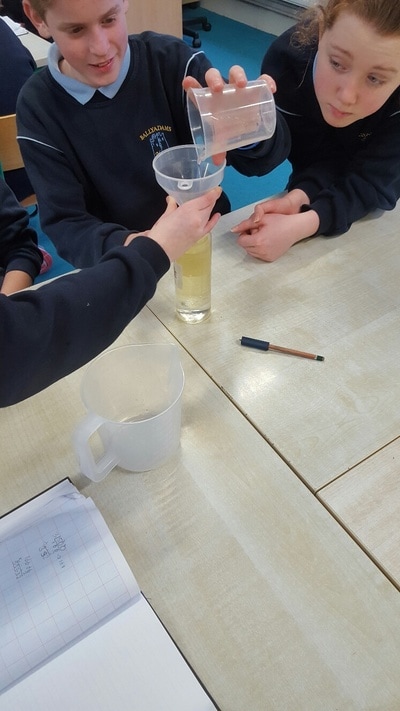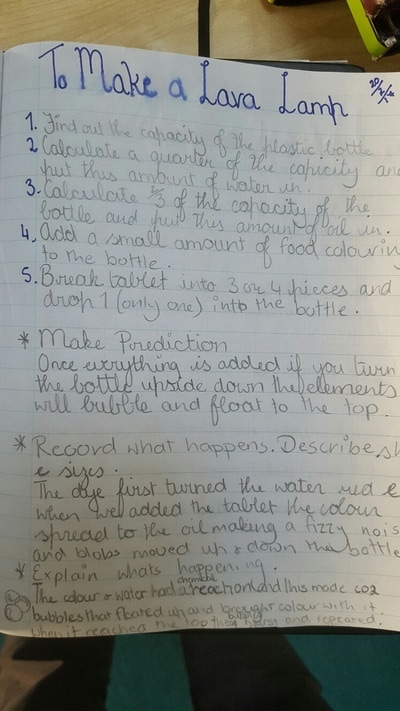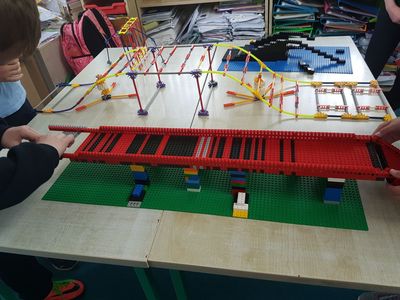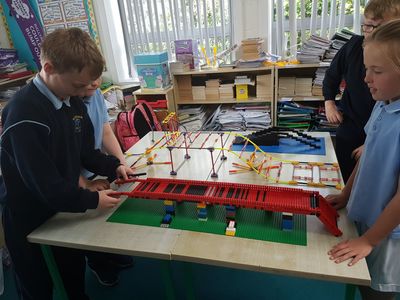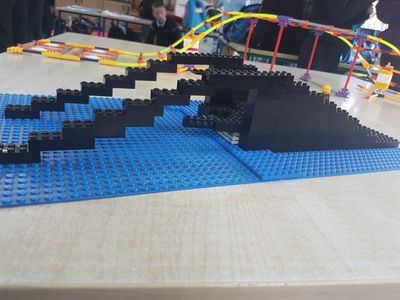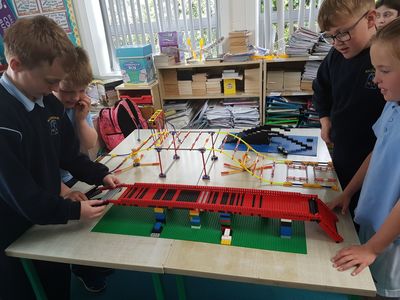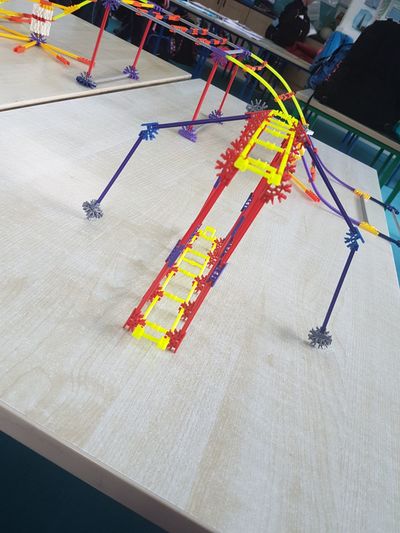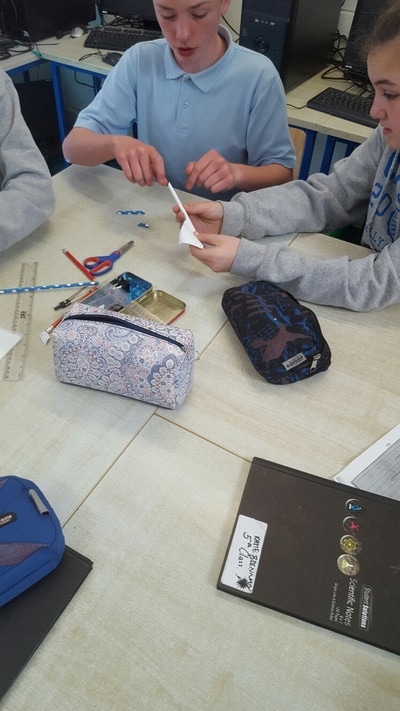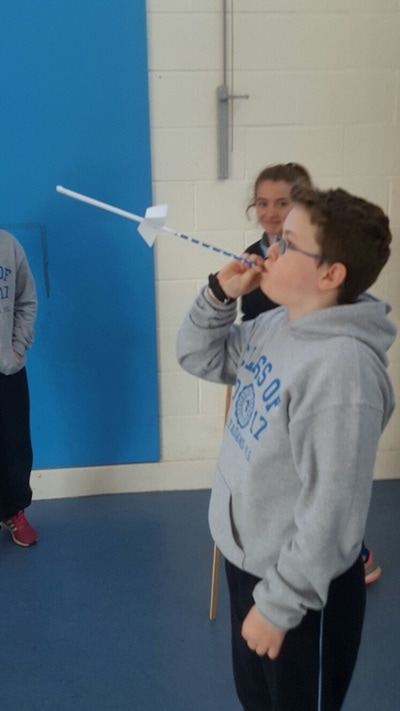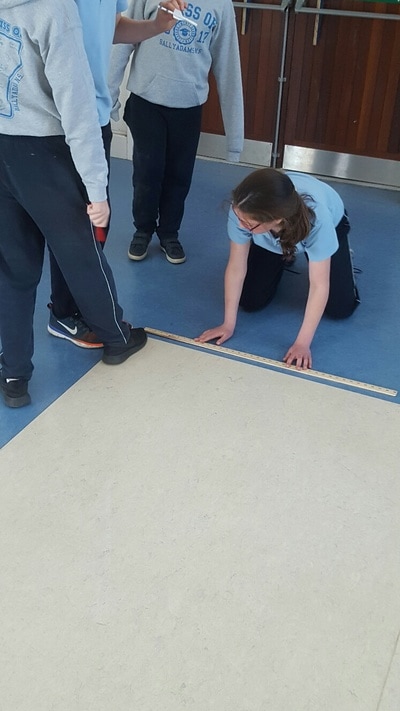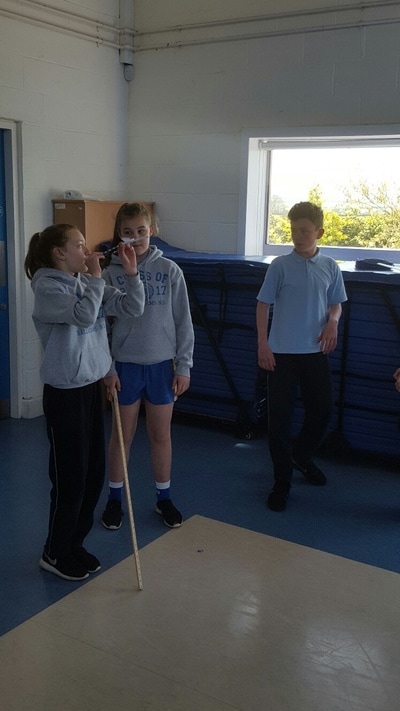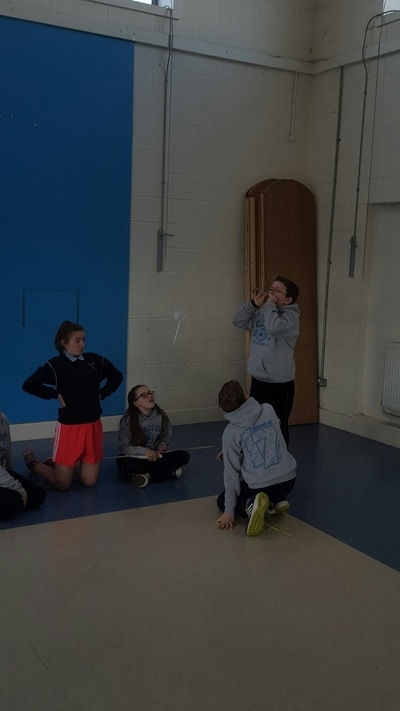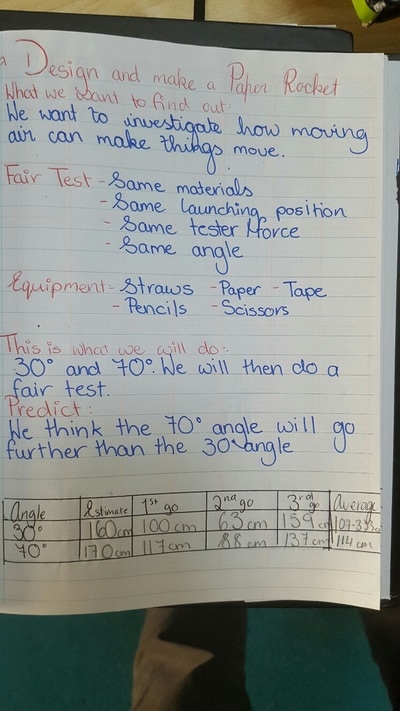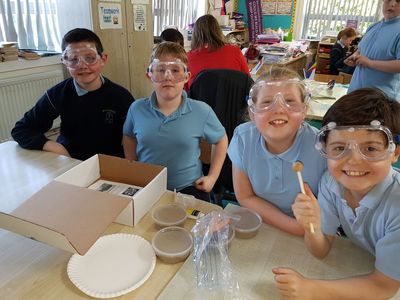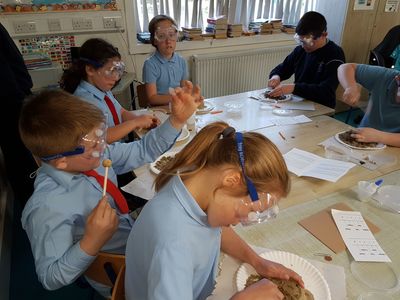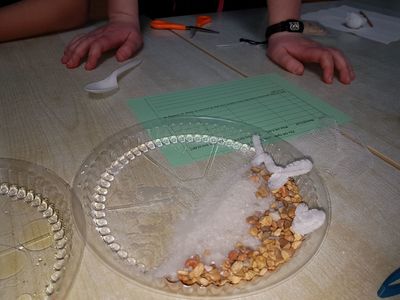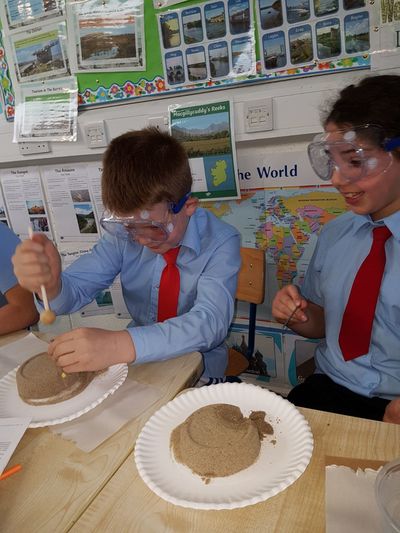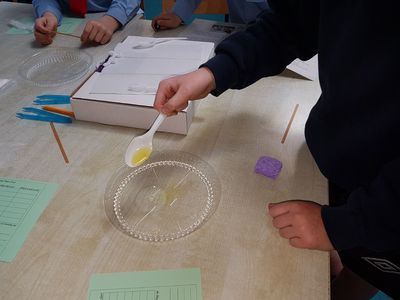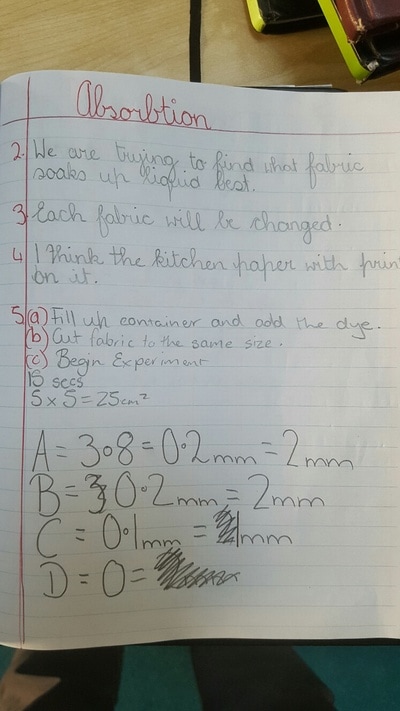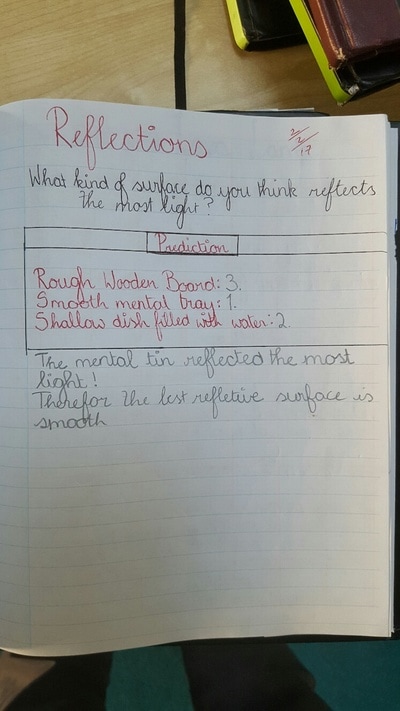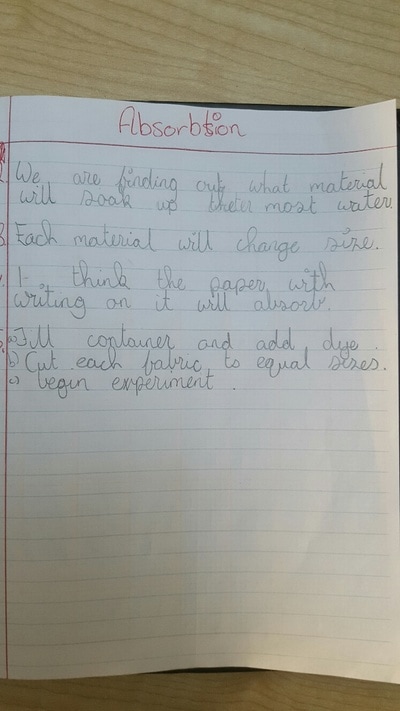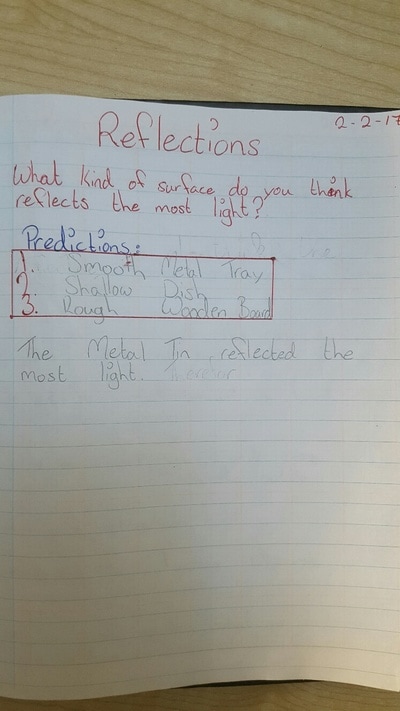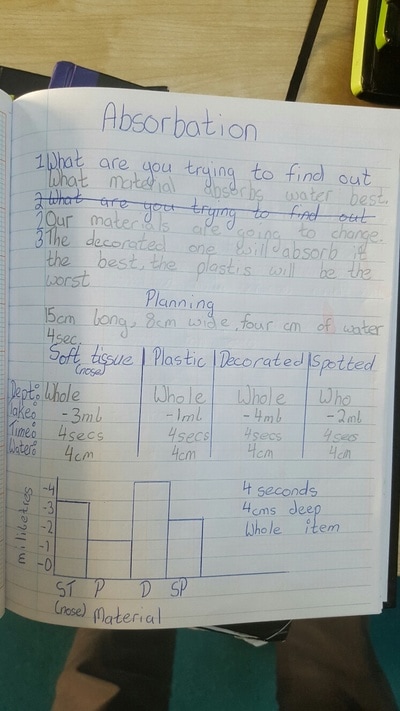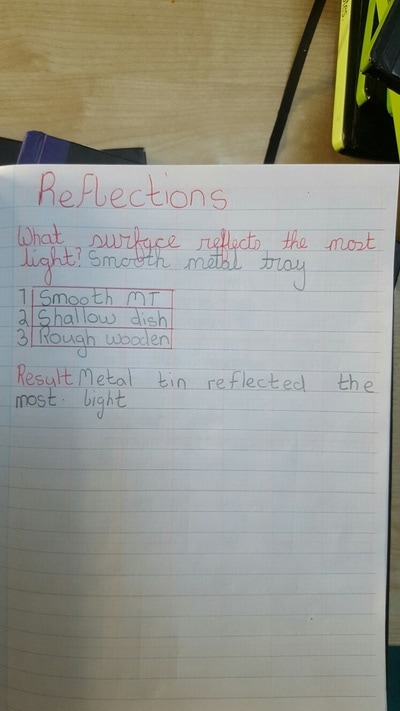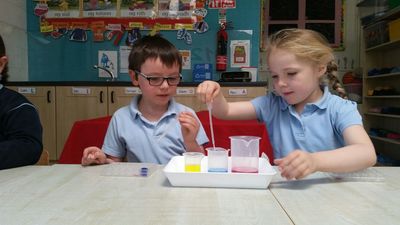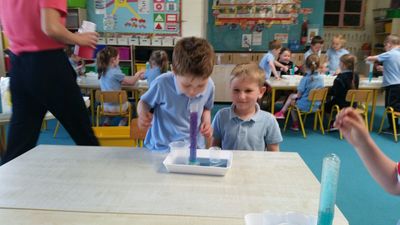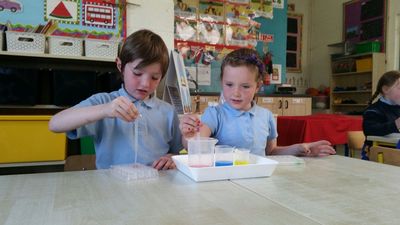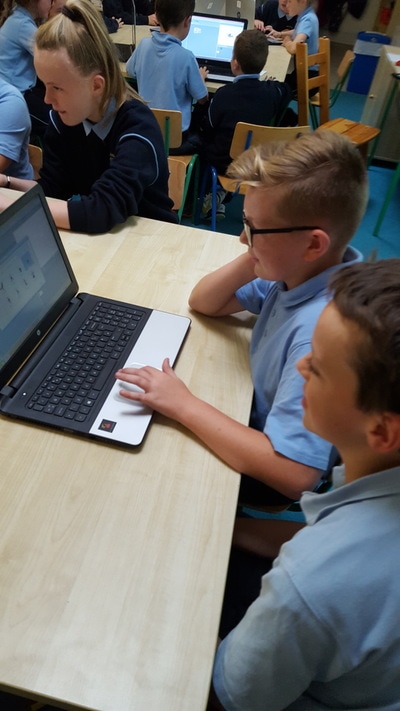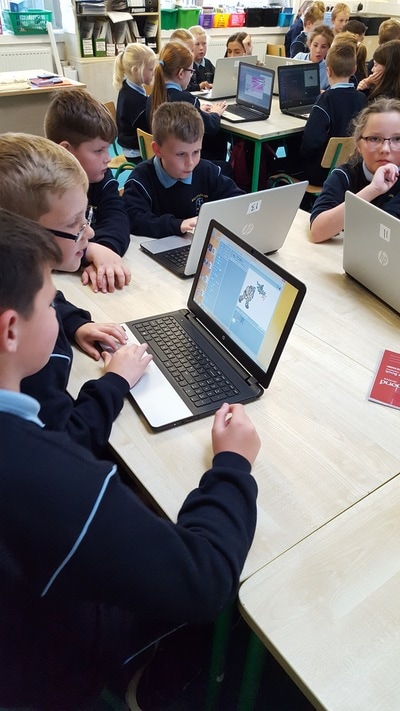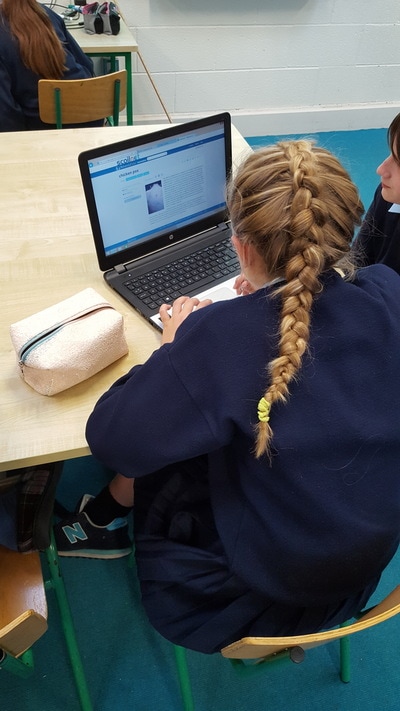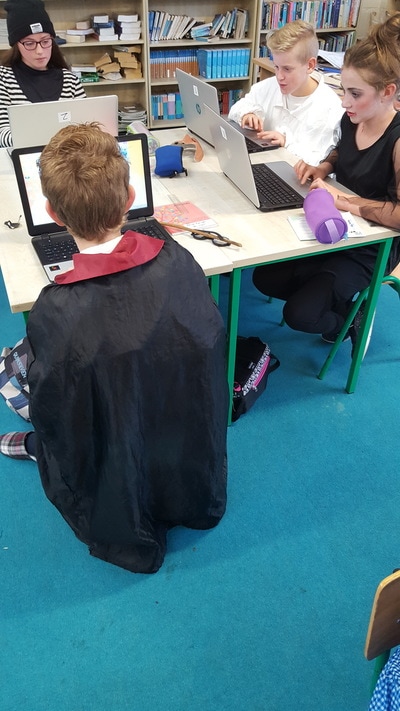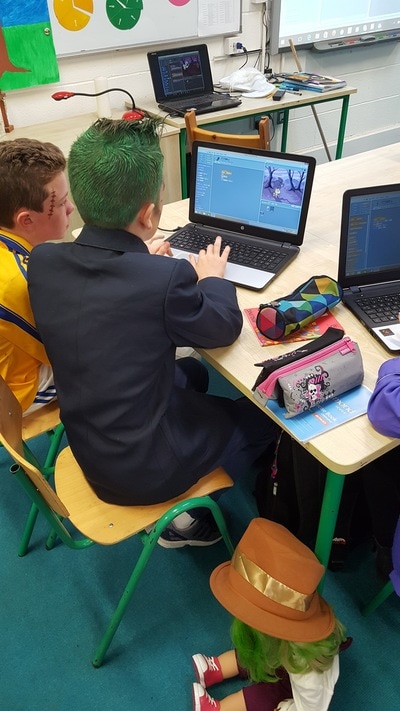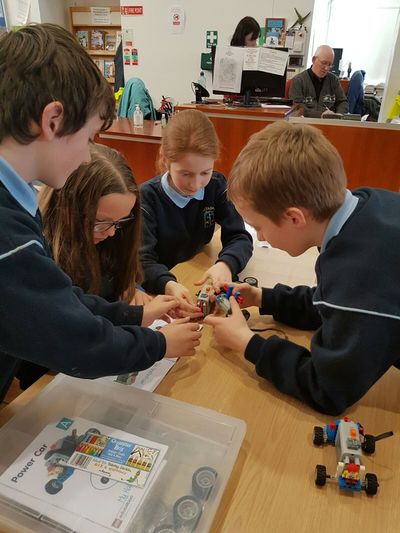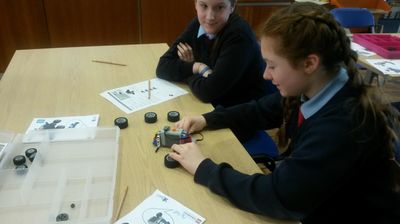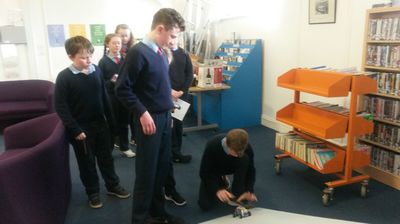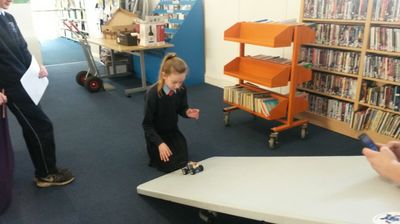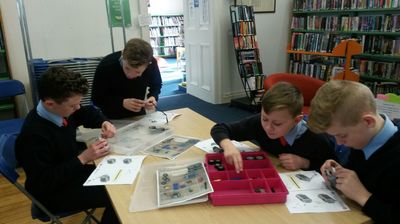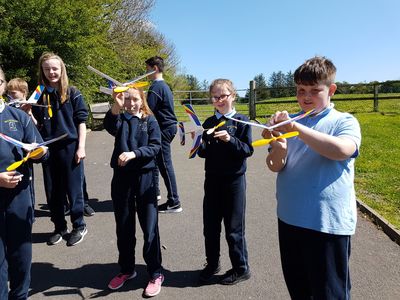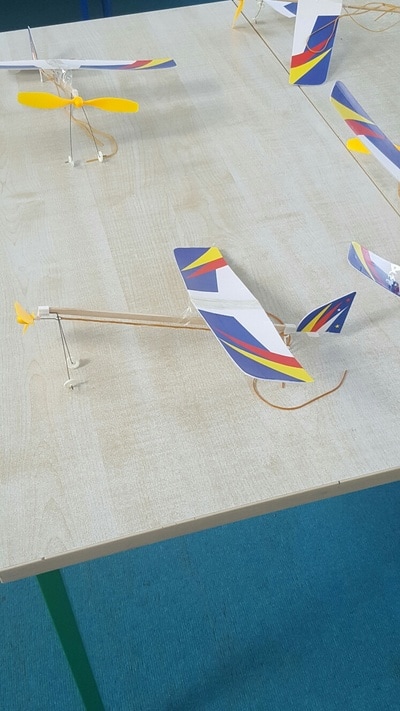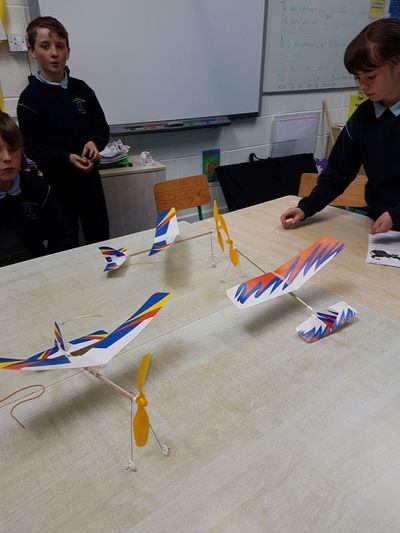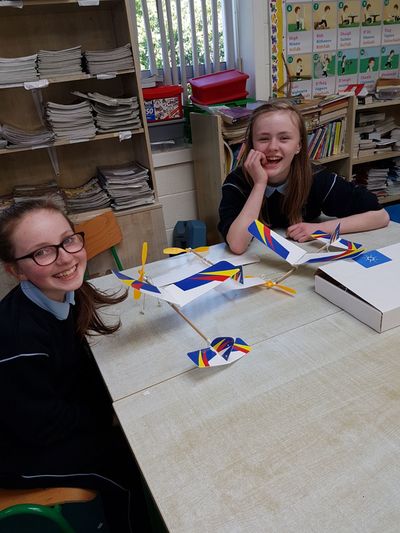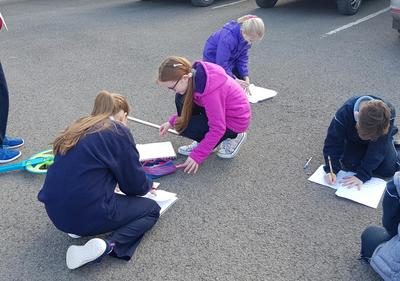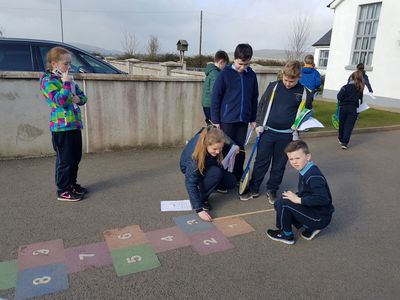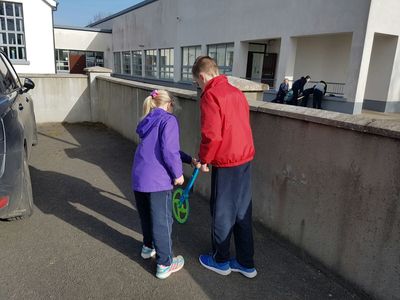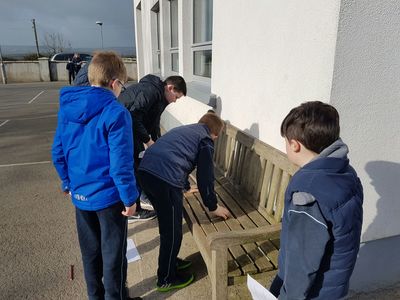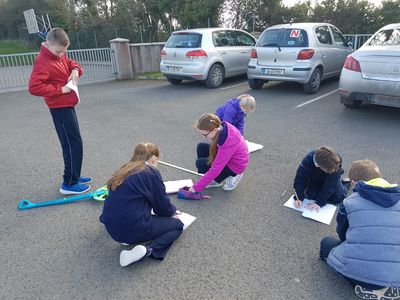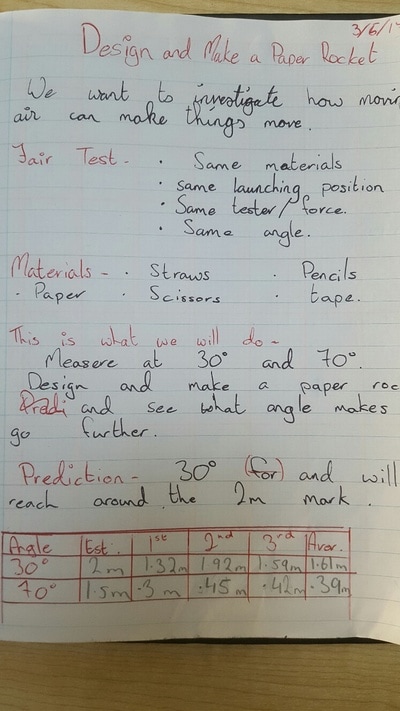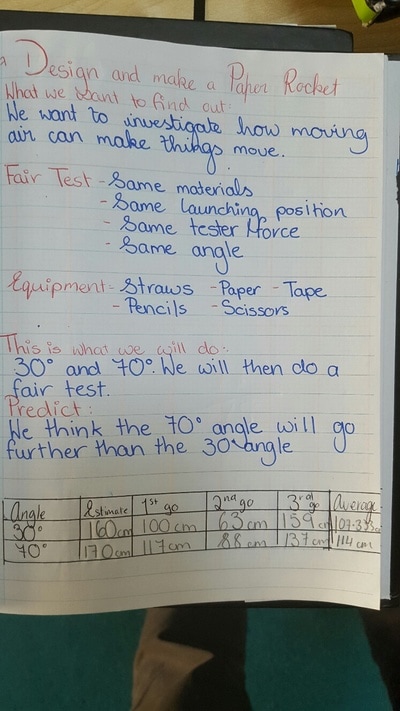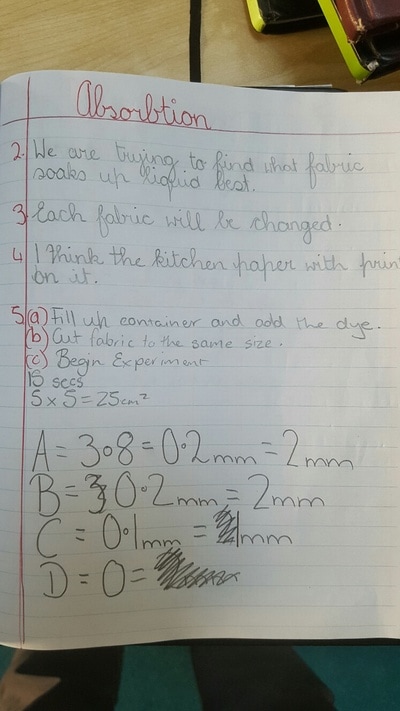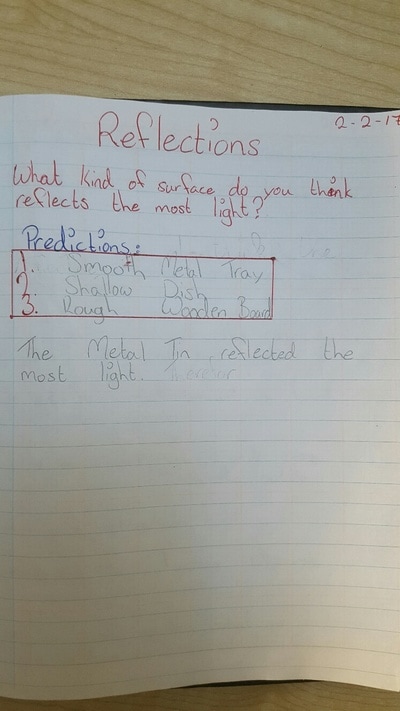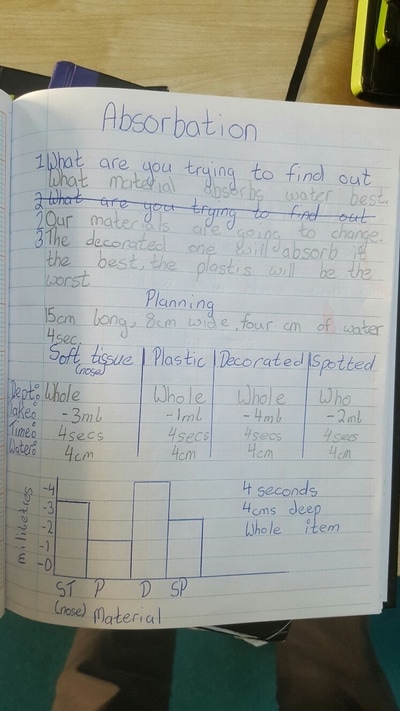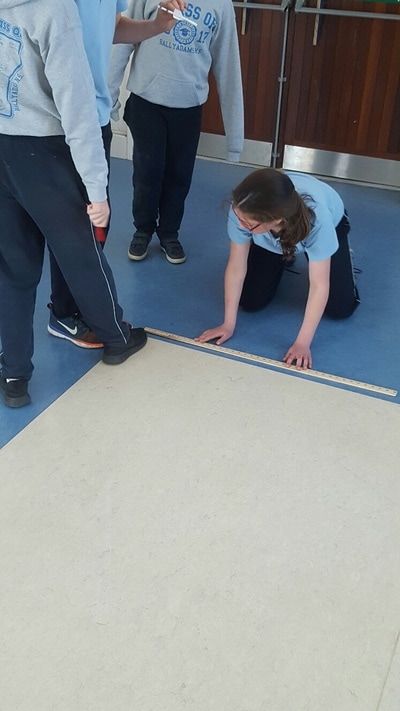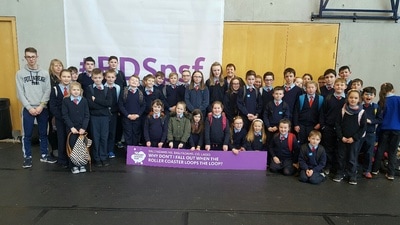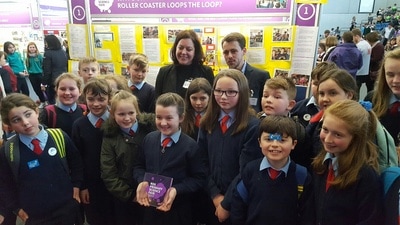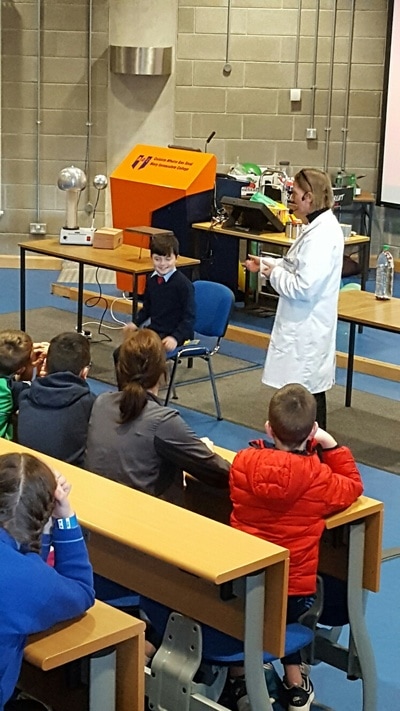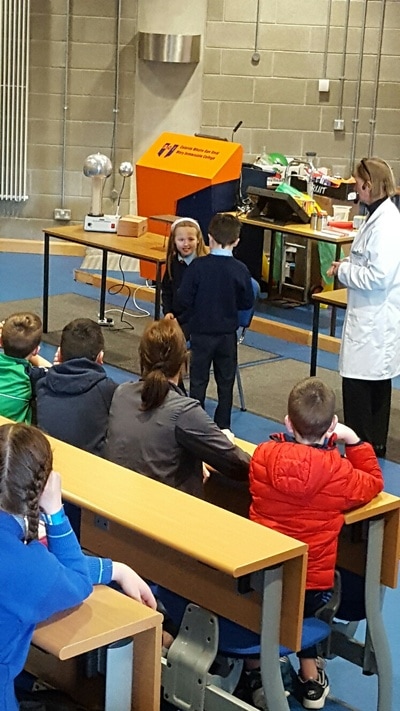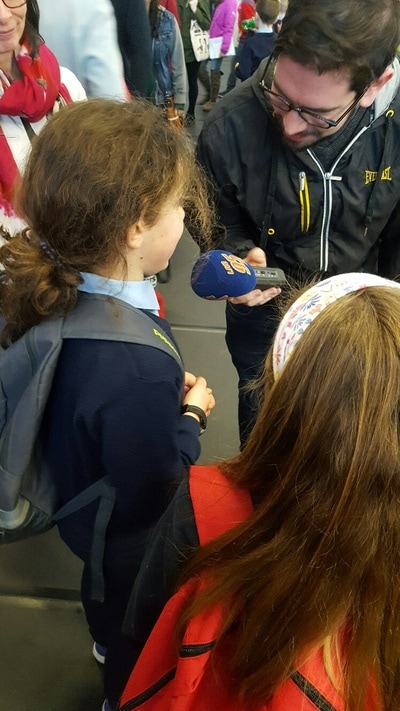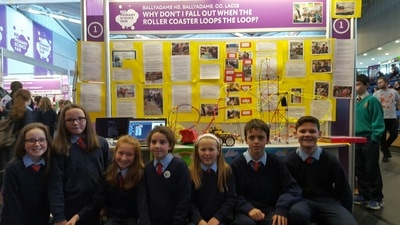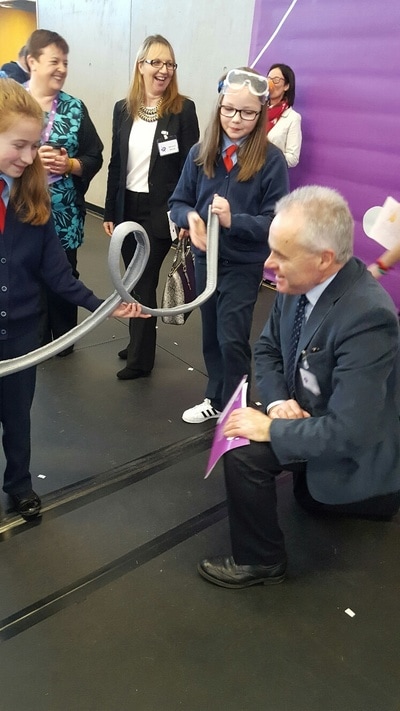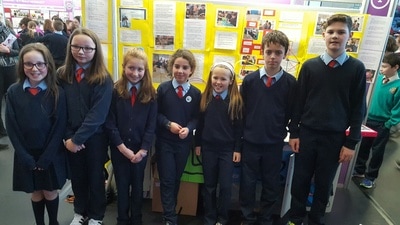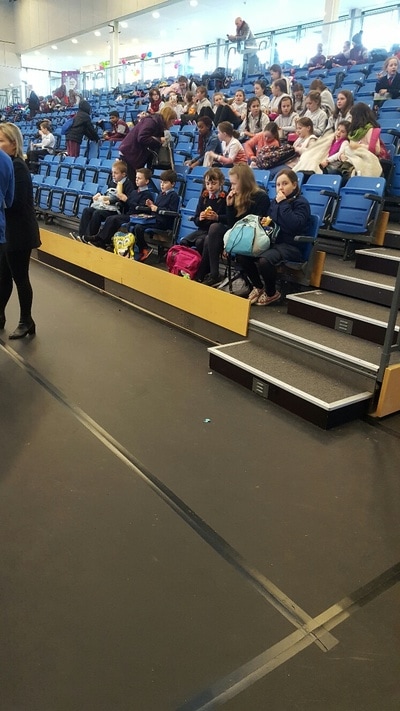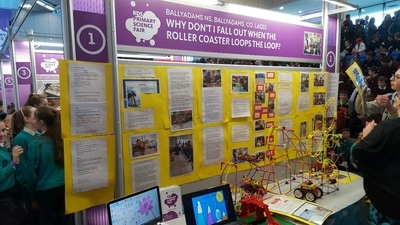Welcome to our submission for the Discover Primary Science and Maths award for 2017. This is our first year taking part in the awards. We are applying for the Plaque of STEM Excellence, which is given to schools that carry out extensive work in science, technology, engineering and maths, all of which are very important in Ballyadams.
There are 5 Steps to achieving the STEM Plaque of Excellence. Below we have outlined each step and how we have worked to meet the criteria.
There are 5 Steps to achieving the STEM Plaque of Excellence. Below we have outlined each step and how we have worked to meet the criteria.
Step 1 - Science
For this step, we carried out six hands-on Science investigations under the four different strands in classes throughout the school. We also tried to include Maths in these investigations where possible, linking in with Step 4.
Living Things: Make a Bird Feeder
Evironmental Care and Awareness: Make a Bird Feeder
With winter approaching at the time, Ms Kirwan's 3rd and 4th Class made some bird feeders to help the birds stay alive. They made the feeders using the DPSM Planning Guide, filled it with seeds and observed the results outside their classroom window. Please click on the link below to see some pictures.
Living Things: Make a Bird Feeder
Evironmental Care and Awareness: Make a Bird Feeder
With winter approaching at the time, Ms Kirwan's 3rd and 4th Class made some bird feeders to help the birds stay alive. They made the feeders using the DPSM Planning Guide, filled it with seeds and observed the results outside their classroom window. Please click on the link below to see some pictures.
Energy and Forces: Chemical Energy (Making a Lava Lamp)
Materials: Materials and Change (Making a Lava Lamp)
6th Class and 3rd/4th Class both did the 'Making a Lava Lamp' experiment. They used the DPSM Framework of Inquiry as a reference point throughout. The results were startling! There was lots of Maths involved also, which came in useful for Step 4.
Materials: Materials and Change (Making a Lava Lamp)
6th Class and 3rd/4th Class both did the 'Making a Lava Lamp' experiment. They used the DPSM Framework of Inquiry as a reference point throughout. The results were startling! There was lots of Maths involved also, which came in useful for Step 4.
Materials: Design a Bridge
Mrs Murray's 4th and 5th Class designed and built bridges.
Mrs Murray's 4th and 5th Class designed and built bridges.
Energy and Forces: Design and Make a Paper Rocket
6th Class investigated how moving air could make things move. In groups of 4, they designed and built rockets using paper, cardboard and straws. During the same week, we were covering data and averages in Maths. The children recorded their results on a table and calculated the average distance travelled at two separate angles.
6th Class investigated how moving air could make things move. In groups of 4, they designed and built rockets using paper, cardboard and straws. During the same week, we were covering data and averages in Maths. The children recorded their results on a table and calculated the average distance travelled at two separate angles.
Materials: Investigating Soils and Rocks
4th and 5th Class
4th and 5th Class
Materials: Which Material Absorbs Best
6th Class conducted an experiment from the DPSM manual to test for which materials absorb best. The experiments and results are written up below.
6th Class conducted an experiment from the DPSM manual to test for which materials absorb best. The experiments and results are written up below.
Science Speaker/Workshops
DPSM tutor Michelle Maher conducted three hands-on science workshops with Junior and Senior Infants, 1st and 2nd Class and 3rd and 4th Class. The children not only learned lots from the day, but had great fun in doing so. Below are some pictures from the day.
DPSM tutor Michelle Maher conducted three hands-on science workshops with Junior and Senior Infants, 1st and 2nd Class and 3rd and 4th Class. The children not only learned lots from the day, but had great fun in doing so. Below are some pictures from the day.
Step 2 - Technology
Every second Friday, 4th Class, 5th Class and 6th Class have been doing 'Scratch' with Mr Fitzgerald. Scratch is basic computer programming. With Scratch, you can program your own interactive stories, games, and animations — and share your creations with others in the online community. Scratch helps young people learn to think creatively, reason systematically, and work collaboratively. Look at some of the images below of our senior classes engaging in Scratch this year.
Storybird
6th Class used the application 'Storybird' to create and write storybooks for the Infant Classroom. The examples can be found on the 6th Class page on our website. Please click on the link below to view the children's work.
6th Class used the application 'Storybird' to create and write storybooks for the Infant Classroom. The examples can be found on the 6th Class page on our website. Please click on the link below to view the children's work.
http://www.ballyadamsns.com/mr-fitzgeralds.html
Step 3 - Engineering
For Engineers Weeks, Mr Fitzgerald's 6th Class and Mrs Murray's 4th/5th Class visited Athy Library on March 9th to attend the 'Machines and Mechanisms Workshop. Below are a number of pictures from the day.
5th Class designed, built and tested aeroplanes.
Step 4 - Maths
Maths Trails
While recently reviewing how we can improve the teaching and learning of Maths across the school, we agreed that each class would complete at least one maths trail per class each term. Below are some pictures of maths trails in our school this year. Attached also is an example of one of the Maths Trails completed by 6th Class this year.
While recently reviewing how we can improve the teaching and learning of Maths across the school, we agreed that each class would complete at least one maths trail per class each term. Below are some pictures of maths trails in our school this year. Attached also is an example of one of the Maths Trails completed by 6th Class this year.
| maths_trail_march_2017.docx | |
| File Size: | 14 kb |
| File Type: | docx |
Maths and Science
Below you will see evidence of where we used our Maths skills to record and analyse information and data from our Science experiments.
Below you will see evidence of where we used our Maths skills to record and analyse information and data from our Science experiments.
Step 5 - Show and Tell
On January 19th, Mrs Murray's 4th and 5th Class displayed their project - 'Why Don't I Fall Out When the Rollercoaster Loops the Loop?' at the RDS Primary Science Fair at Mary Immaculate College, Limerick. The class had done a lot of work in the weeks leading up to the big day planning, investigating, designing, building and compiling their conclusions. The judges and general public were mightily impressed with our project. Below are some photographs from the day.
